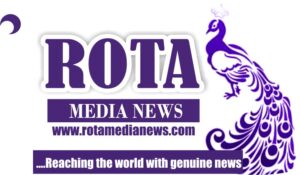By Chiwuike Uba
Overall, Nigeria’s economy could be described as faltering and unstable, with all macroeconomic indicators and socioeconomic indices heading south.
Nigeria is facing severe monetary and fiscal challenges at the same time. This is evidenced in the rising interest rates, budget deficit, debt and interest on debts, gyrating exchange rate, shrinking revenue, insecurity, corruption, high inflation and unemployment, limited power supply, low productivity, and weak macroeconomic management among others.
A cursory look at the indicators shows that Nigeria’s unemployment rate increased by 437 per cent from 6.2 per cent in 2015 to 33.3 per cent as of the fourth quarter of 2020, according to unemployment data from NBS. Sadly, there are currently no real targeted actions to stem the rise in unemployment.
Our current education system is not innovative and driven by entrepreneurship, critical thinking, and problem-solving skills. On average, ASUU has spent 34 per cent of total academic days, representing more than three days in every 10 working days on strike since 1999. The future of the Nigerian economy is supposed to be knowledge-driven.
Unfortunately, the acquisition and development of the needed knowledge are being hampered by the unfolding paralysis, occasioned by poor basic education and incessant strikes at the tertiary education level. Compared with knowledge, the devastating impacts of dried crude oil wells on Nigeria’s economy will be child’s play if we don’t solve this problem urgently. Increased insecurity, human capital weakness, and social and economic development are linked to poor education.
Nigerians are faced with poverty like never before coupled with a deteriorating standard of living as a result of rising prices of goods and services triggered by rising inflation and other economic challenges. How can the economy be okay with over 133 million Nigerians in multidimensional poverty, which is nothing but abject poverty? In fact, Nigerians are now more miserable and unhappy than they were in 2015. Nigeria’s misery index rose to 62.79 points in July 2022 compared to 47.7 points in 2015. The inflation rate is largely driven by the high costs of petroleum products, exchange rate volatility, electricity, and insecurity. At both official and parallel exchange rate windows, naira depreciated by 126 per cent and 276 per cent, respectively compared to 2015 exchange rates. The inflation rate of 21.47 per cent in November 2022 is an increase of 134 per cent from the average inflation rate of 9.01 per cent in 2015. The excess crude account has also depleted to about $376k from $2.1 billion in 2015.
The interest rate has not fared better either. The interest rate has increased by 26.9 per cent from MPR of 13 per cent in 2015 to MPR of 16.5 per cent as of September 2022. Economic growth represented by GDP has also trended downwards. It is clear that Nigeria’s economy is not only better before the administration of President Muhammadu Buhari, but also better in early 2022 compared to now. In particular, between Q1 2022 and Q3 2022, agricultural and services growth rates declined by 58 per cent and six per cent respectively. Overall, the non-oil growth rate decreased by 30 per cent and the oil growth rate by 13 per cent. The real GDP growth rate at basic prices decreased by 28 per cent from 3.11 per cent in Q1 to 2.25 per cent in Q3. In the same vein, real GDP growth at market prices fell by 34 per cent from 3.6 per cent in Q1 to 2.28 per cent in Q3. Export declined by 16.4 per cent from N7.1 trillion in Q1 to N5.9trn in Q3, non-oil export declined by 38.8 per cent from N715 billion in Q1 to N437 billion in Q3 and crude oil export by 17.1 per cent compared to 13.8 per cent decline in non-crude oil export during the year. In general, the economy has not fared well, which is why it is urgent to implement policies and interventions to reverse the economic collapse, which is in auto-decline mode.
Most impactful economic issues in the year
Personally, I see the high poverty rate, oil theft, and pipeline vandalism as the most significant economic issues in Nigeria in 2022. This is due to their ripple effects on Nigeria’s revenue, inflation, insecurity, and fiscal deficit among other myriad socio-economic challenges facing the country. According to a 2022 study supported by Shell, oil theft costs Nigeria N30 to 60 trillion yearly. You can imagine the impact the loss of revenue would have had on the economy had it not been lost and had it been properly used for the public good.
The NSA recently warned that Nigeria could lose up to $23 billion in 2023 if the theft of crude oil continues. Despite an increase in crude oil price, Nigeria’s half-year gross oil revenue was N2.17 trillion compared to the budget projection of N4.68 trillion for the same period, indicating a shortfall of 53.63 per cent against the 2022 half-year budget estimate. Only N242.3 billion accrued into the Federation account as actual net oil revenue as of June 2022, depicting a decrease of over 80 per cent from the estimated half-year budget. Unfortunately, the decline in revenue exacerbated the already high fiscal deficit for the year, leading to a half-year fiscal deficit of N5.5 trillion, which is 77.2 per cent above the projected amount.
Recourse to ways and means, and external and domestic borrowing to finance the deficit has only created more economic challenges than providing the necessary solution. For example, the increase in ways and means has contributed around 40 per cent to the money supply, which in turn contributes 7.6 per cent to inflation. Debt servicing, which stood at N2.6 trillion in the first half, impaired the implementation of capital projects within the half-year period. As usual, instead of facing the threat of oil theft head-on, the government has chosen to set up committees that will produce reports that will end up on the book shelf.
You briefly talked about the inflation concern, which is decelerating in advanced economies. Has Nigeria’s inflation peaked?
Inflation in Nigeria has not reached its highest level. There is no question that inflation will continue to increase in 2023 because the engines of inflation have not yet been properly combated. Over 70 per cent of inflation is driven by the exchange rate (depreciation of the naira), with diesel and aviation accounting for over 11 per cent and about seven per cent by other exogenous shocks. Interestingly, the contribution of the money supply to inflation is below 10 per cent.
Yet, the policy direction of the CBN largely focuses on the money supply, without the effort needed to address ways and means and the question of the exchange rate. The CBN’s contribution to the federal government through ways and means is about 40 per cent of the total money supply, which in turn contributes to inflation.
The new policy on maximum cash withdrawals can help tighten the money supply, but it is obvious that election spending will likely increase liquidity. The 2022 floods will affect the yield of agricultural products (including over zero per cent post-harvest loss) and could likely lead to higher commodity prices as food inflation hits rooftops. Of greater concern is the CBN’s approach to the triple challenge of inflation, interest rates and exchange rates. The cutting down of trees, discontinuance of the sale of foreign currencies to BDCs, fight against ABOKI FX, the arrest of BDC operators, and other policies of CBN have failed to resolve the issues. You cannot solve structural problems with a knee-jerk approach that doesn’t rely on evidence. Furthermore, the misalignment, disagreement, and poor synergy between the monetary and fiscal authorities seem to hamper the government’s efforts to combat rising inflation. We have to rethink our strategy if we want to properly deal with this challenge.
Growth Prospects
I am concerned with the high MPR, which is currently at 16.5 per cent. Nigeria’s growth rate is already on a downward trajectory, dropping from 3.11 per cent in Q1 to 2.25 per cent in Q3, with no prospects for improvement any time soon. How can we expect growth when the high MPR will discourage companies from spending, thereby reducing productivity and even the number of workers? We are already facing high unemployment and associated consequences. For example, it was reported that the stock market lost more than N96 billion in three trading sessions when the MPR increased from 14 per cent.
This gives the impression that CBN policy is not based on empiricism (available evidence) when it focuses on inflation from the money supply perspective alone. Even if we want to focus on the money supply, what effort has the CBN made to reduce the ways and means, which contribute over 40 per cent of the total money supply? As I pointed out earlier, the depreciation of the naira, oil products, and other exogenous shocks, foreign loans, ways, and means are the main drivers of current inflation in Nigeria. The contribution of the money supply is small, but the CBN seems to focus on the money supply, despite the impact of a high MPR on the economy. As a matter of fact, right now there seems to be a positive correlation between MPR and inflation. The higher the MPR, the higher the inflation rate because we are targeting the wrong metrics.
The increase in MPR in recent times has only created more problems for individuals, companies, and other investors who already face multiple challenges. The truth remains that high MPR can only lead to increasing in manufacturing/production input costs, which will naturally transmit to higher inflation from higher prices of goods and constrained production in the economy.
2023 Predictability
Nothing in Nigeria is currently predictable, except waiting for funny news that can only be told in folk tales. We can predict that more snakes will swallow more money, press releases will be issued and the matter will die a natural death. Nevertheless, it is foreseeable that the 2023 budget presented to the National Assembly will be difficult to finance because of unrealistic revenue and spending forecasts. The budgetary parameters are not realistic and could therefore be revised in 2023 to take into account the reality. Food insecurity will increase in 2023 following the 2022 floods and poor implementation of agriculture policies by governments. The increase in government debt, inflation, exchange rate volatility, the depreciation of the naira, and others will continue in 2023.
On the other hand, there is uncertainty surrounding the 2023 election and its result. It is clear that the 2023 presidential election has assumed an ethnic and religious inclination, which is bad for the peace of the nation. Young people or rather all citizens are angry. According to their perception of the conduct of elections, we may have a crisis waiting to burst after the election. To this end, INEC, NOA, and other relevant governmental and non-governmental organisations must engage in ongoing awareness throughout the country. Citizens need to be sensitised and educated on the need for peace and development. We cannot continue to go around in circles, making motions without movement. I believe that Nigeria will become great again






